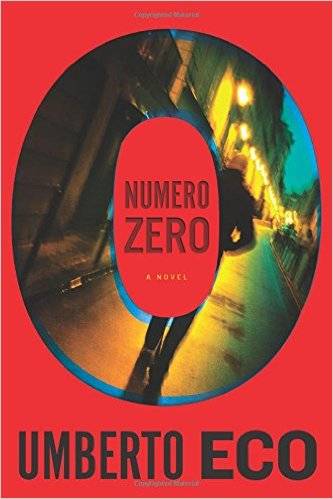

Set in 1992, as the Cold War subsided into a fool’s peace and the Italian political system was decimated by corruption scandals, it chronicles struggling hack Colonna as he’s voluntarily sucked into the demimonde of tabloid rags and neo-fascist scheming. Of course, Numero Zero doesn’t do this directly, but via the spinning of a conspiratorial maze that ends up becoming an allegory for the conditions of its own emergence. This gripping story from the author of The Name Of The Rose is told with all the power of a master storyteller.Sign up for our newsletter to get submission announcements and stay on top of our best work.Īs inauspicious and paradoxical as it sounds, Umberto Eco’s sixth novel is a success precisely because it portrays its own irrelevance and insignificance. Fuelled by media hoaxes, Mafiosi, love, gossip and murder, Numero Zero reverberates with the clash of the cynical forces that have shaped Italy since the last days of World War II. But when a body is found, stabbed to death in a back alley and the paper is shut down, even he is jolted out of his complacency. As Colonna gets to know the team of journalists, he learns the paranoid theories of Braggadocio who is convinced that Mussolini's corpse was a body-double and part of a wider Fascist plot. His subject: a fledgling newspaper, which happens to be financed by a powerful media magnate. Colonna, a depressed writer picking up hack work, is offered a fee he can't refuse to ghost-write a memoir.

The precise circumstances of Il Duce's death remain shrouded in confusion and controversy. Mussolini and his mistress are captured by local partisans and shot in a summary execution. ★ ★ ★ ★ ★4 Reviews Sign in to write a reviewġ945, Lake Como. Umberto Eco (author), Richard Dixon (translator)


 0 kommentar(er)
0 kommentar(er)
